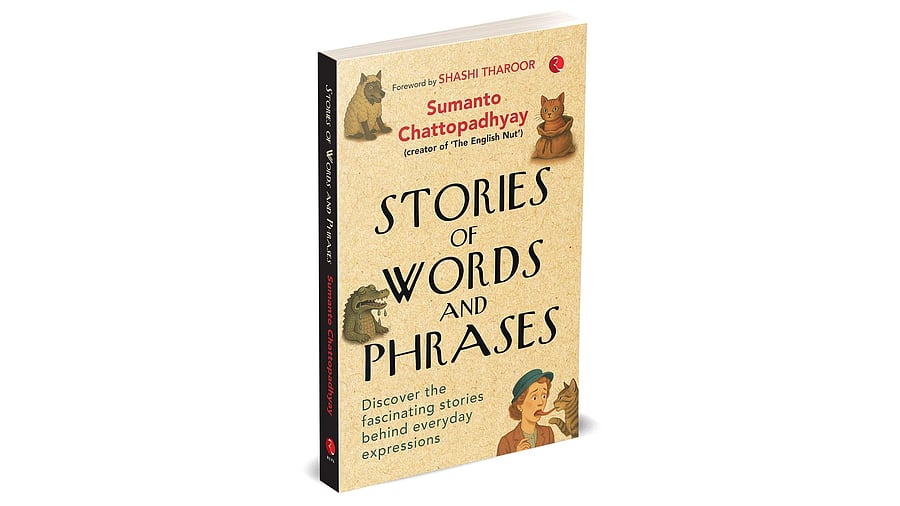
Stories of Words And Phrases
I picked up Stories of Words and Phrases by Sumanto Chattopadhyay as a lark, expecting it to be an ‘Ah, I know this already’ affair. But this neatly produced book turned out to be a joyous journey into etymology, linguistics and cultural nuances. Here, each phrase is imbued with persona — it spins and dips and then reveals how it was born.
So, if you thought you already know all about words such as ‘deadline’, ‘quarantine’, ‘Bluetooth’ and phrases such as ‘crocodile tears’ and ‘cost an arm and a leg’, then you need to breeze through this book. You will soon find out that not only do many of these words and phrases have scandalous origins, but they also have quirky ancestors.
These are phrases that have sprung out of a potpourri of history, culture, trade, war and humour. Take the word boycott. A land agent in Ireland, Captain Boycott (from whose surname the word originated), was himself socially isolated not only by his employees but also by others in his community, for reasons related to new tenancy rules. Shops did not serve him, nor did the postman deliver his letters! And that’s how his name became a household word. Another interesting anecdote is about the origins of the phrase ‘run amok’. ‘Amok’ comes from the Malay word spelt ‘amouco’ or ‘amuco’ and reached English shores through the Portuguese. Captain James Cook, the famous British explorer, wrote in one of his journals that ‘amok’ is a person “behaving violently without any apparent cause”.
Sumanto doesn’t lecture. He is gentle in his storytelling and quite obviously enjoys the absurdity of some of the stories he is narrating. His style is playful and conversational. This is a book you casually pick up while you are on your third cup of black coffee and are in the mood for some digging — of the etymological kind. Each chapter is a story by itself; just that the main and the side characters both happen to be words. Some of these are extraordinarily dramatic tales, while others are quiet nudges. The author’s light touch ensures that you treat both kinds of stories like old friends...you know them, but it is only now, after years, that you are catching up with them again. Which is why, if you do not know where ‘extend an olive branch’ originates from, you don’t really mind — you read, you learn, and you ‘play it by ear’.
What is genuinely interesting is how the book does not stick only to the English origins of phrases but also takes the reader on a detour through Persian, Latin and Italian, among other languages, to show how every language is a tapestry woven from everywhere. The author also keeps the language free of jargon and ostentation, which is, frankly, a relief in a book about words!
One wishes there were inclusions of words and phrases that have an Indian origin; needless to say, there are thousands of them. This would have allowed the author to dig a bit into how trade and colonialism, among other things, created the very unusual animal that serves us all — Indian English. Also, some chapters end rather abruptly, while others could have benefited from some tighter editing.
However, these are but minor quibbles. If you are the kind who loves trivia or you happen to be a crossword fanatic, this is a book you must pick up. I would also think a book like this would quite enliven up an English class, especially if a teacher builds puzzles and riddles from the stories it offers.